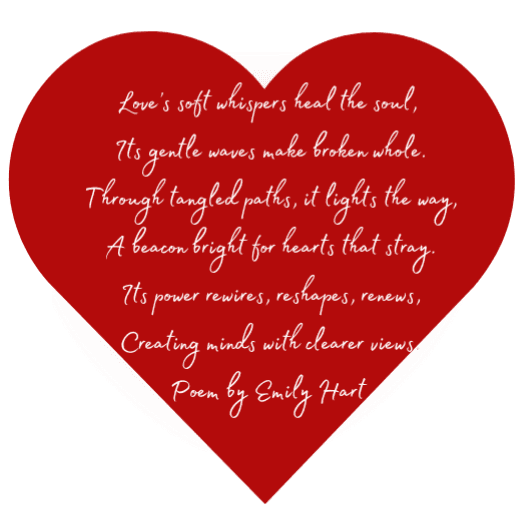It’s not about candlelit dinners or the perfect Instagram-worthy couple’s photo. Love is raw, messy, and deeply transformative. It has the power to challenge your core beliefs, tear down emotional walls, and build a new, stronger version of yourself. And let me tell you, your brain isn’t always onboard with this adventure.
Your brain prefers comfort zones and familiar patterns, but love thrives in the unpredictable and unexplored. That’s what makes it so exhilarating and daunting all at once. But that’s precisely why I am in love—because love isn’t just an emotion; it’s a journey of rewiring your mental operating system.
Why am I in love?
love is an enigma, a labyrinth of emotions that your brain often struggles to decode. It’s a phenomenon that combines biology, chemistry, and psychology, creating a complex web of emotions that impacts every facet of life. Whether you’ve experienced heartbreak or are head-over-heels, love is a universal force that shapes our identities and aspirations.
Love Is a Beautiful Paradox
Let’s start with this: Your brain treats love like a double-edged sword. On one side, love releases a cocktail of chemicals—dopamine, oxytocin, and serotonin—that make you feel euphoric. On the other hand, it triggers your brain’s ancient survival mechanisms, creating fear of vulnerability and loss. It’s like your brain’s running Windows 95 while trying to stream 4K videos. Yet, this paradox is why love is so powerful. It pushes you to face fears and embrace growth. And trust me, there’s nothing more exhilarating than hacking your brain’s prehistoric programming to unlock the magic of connection.
Love’s a dance in shadowed light,
A spark that flickers through the night.
It whispers softly and roars untamed.
A bond that’s fragile yet unnamed.
Through joy and pain, it carves its way,
A force that grows with each new day.
In love, I’ve found my soul’s ballet.
Poem by John Doe
The Science of Falling in Love
When I say I’m in love, I’m not just talking about feeling giddy around someone special. I’m talking about the way love transforms the brain. Neuroscience reveals that love activates the brain’s reward system, making us crave our partner like chocolate or caffeine. But here’s the kicker: love also deactivates the prefrontal cortex, the part responsible for judgement. That’s why love can make you blind to flaws and red flags. Yet, it’s in this vulnerability that true connection blossoms.
In addition, love boosts the production of oxytocin, also known as the “bonding hormone,” which fosters trust and emotional intimacy. This hormonal rush creates a sense of security and belonging. Studies also show that being in love reduces levels of the stress hormone cortisol, making you feel calmer and more grounded. Moreover, it strengthens neural pathways, enhancing memory and cognitive function over time.
Ultimately, love is a dynamic force that reshapes your mental and emotional landscape, encouraging growth and self-awareness while fostering a profound connection with another.
The Strength in Vulnerability in Love
Here’s a truth bomb: vulnerability isn’t weakness. It’s the ultimate flex. Love demands that you strip away your armour, exposing your raw, unfiltered self. And yeah, that’s terrifying. But it’s also liberating. When I’m in love, I’m not just connecting with another person; I’m confronting my fears, insecurities, and past traumas. Love doesn’t just heal—it reconstructs.
Vulnerability fosters deeper trust, allowing love to thrive in a space of authenticity. By embracing our flaws, we create stronger emotional bonds. It’s a process of breaking down barriers to reveal a raw humanity that connects us. Vulnerability is a bridge to true intimacy, strengthening not only relationships but also our inner resilience. When you let someone see your true self, you invite them to do the same, forming a connection that’s unshakable and profoundly enriching.
Read More: life facts
Love’s Honesty
If you think love is just about romance and bliss, think again. Love is raw and revealing—it challenges your flaws, pushes your ego, and holds up a mirror to your true self. But that’s where its magic lies. In those honest moments, you discover growth, authenticity, and deeper connection. Love strips away illusions, fostering mutual respect and understanding and strengthening both you and your relationship.
The Everyday Magic of Love

Now, let’s talk about the little things. Love isn’t just about grand gestures; it’s about the everyday moments. It’s in the way they remember your favourite coffee order, the late-night conversations about nothing and everything, and the quiet moments of just being together. These seemingly mundane acts create a tapestry of connection that’s richer than any Hollywood romance.
How Love Rewires Your Brain

Here’s a fun fact: love can literally rewire your brain. Studies show that long-term love increases neural connectivity, boosting your emotional resilience and cognitive empathy. In other words, love makes you smarter and kinder. It’s like upgrading your mental software to a more advanced, compassionate version.
- Enhanced Emotional Resilience: Love helps you bounce back from stress and adversity more quickly. You learn to manage emotional challenges with greater ease.
- Improved Cognitive Empathy: Long-term love fosters a deeper understanding of others’ feelings, making you more attuned to their emotional states.
- Stronger Neural Connectivity: Loving relationships strengthen the connections in your brain, improving memory and decision-making skills.
- Lower Stress Levels: Love reduces cortisol levels, helping your brain and body stay calm and focused.
- Boosted Creativity: Being in love often sparks creative thinking, helping you approach problems with fresh perspectives.

One of the most beautiful aspects of love is the power of shared dreams. When I’m in love, I’m not just pursuing my own goals; I’m building a future with someone else. It’s like co-authoring a book, where each chapter reflects your shared adventures, challenges, and triumphs.
Love: A Path to Growth
Love is a transformative journey, not just a romantic ideal. It pushes you to face your insecurities, overcome self-doubt, and build resilience. True love inspires personal growth, encouraging you to strive for your dreams and become the best version of yourself. It’s not about finding someone to complete you, but about finding a partner who motivates and challenges you to grow.
- Self-Discovery: Love helps you understand who you truly are by reflecting your strengths and weaknesses.
- Emotional resilience: It teaches you to handle challenges and setbacks with grace and determination.
- Motivation to Improve: Being in love often sparks a desire for self-improvement, whether through learning, health, or personal habits.
- Expanded Perspective: Love broadens your worldview, introducing you to new ideas, cultures, and experiences.
As you navigate the complexities of love, you gain wisdom, empathy, and emotional strength. Love isn’t just an emotion; it’s a catalyst for becoming a more fulfilled and authentic version of yourself.
So, why am I in love? Because love is the ultimate adventure. It’s about embracing the beautiful chaos of human connection and discovering the magic within. Love isn’t just an emotion; it’s a revolution—a daring leap into the unknown that redefines what it means to truly live.
.

